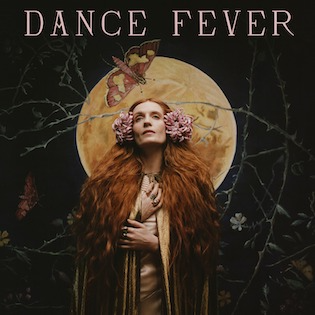Albums in the Age of the Song
It has been widely discussed recently that, due to the prevalence of streaming as the primary means of music consumption, the album's use as an artistic form has taken a significant hit. In the age of streaming and social media, artists need to make quick impressions that fall between the two and three and a half minute mark.
Think about it: when you listen to music, you’re likely listening to a playlist that you’ve curated for yourself or to songs as lone entities. This has not been the case for most of music history. Until the invention of musical pirating software like Nabster or purchasing and downloading software like Apple Music, it took more than a click to listen to a song on its own. If someone before recorded music wanted to listen to Mozart’s “Allegro in D minor” when it first came out, they either had to attend an entire live performance or buy the sheet music and dedicate the time to learning it themselves. If a Beach Boys fan wanted to listen to “I Get Around,” they had to either buy the whole All Summer Long album, or get the 45 record of the individual song, which was significantly more expensive. The purchasing and listening format of this music significantly impacted how listeners consumed it, and, subsequently, the way artists created it.
Because of the age of streaming, the album is becoming a lost art. More and more, albums don’t function as albums but as playlists that artists create from their own music. True albums are cohesive and tell a story; they are layered and complex, holistic and multifaceted. As streaming and social media marketing becomes more and more ubiquitous, the album presents a dying breed within the realm of music production. It seems that albums like Rumors and Aeroplane Over the Sea are products of a bygone era, where music demanded more than three minutes of a listener’s attention. So, to remedy this, I’d like to humbly present five albums from the last six years that I think make the case for spending hours with your headphones in.
COURTESY IMAGE // WIKIPEDIA
Florence and the Machine - Dance Fever
Dance Fever is a metered, manic, and raw look inside fame, artistic integrity, and the female perspective. From the first, primordial bass notes of “King” to the layered, pleading vocals and audience cheers on “Morning Elvis,” Dance Fever will grab you by the collar and make you look at what it means to be a person. For me, what makes this a true album is how wide-ranging the themes are, all the while still feeling structured and unified. Dance Fever takes many dips and turns, high highs and low lows, but it keeps its eyes fixed on the same horizon.
COURTESY IMAGE // WIKIPEDIA
SZA - SOS
Famously dishonest but painfully vulnerable, SZA has taken the digital age of music and made it her playground. SOS is so special because of the intense labor and artistic process it betrays; we can almost see SZA in all of her rare forms in one place. The album explores new places in her sound while still maintaining what everyone already loves about her. The popularity of this album and the standout songs from it doesn’t at all disqualify it from being a strong work in its entirety. What makes this an album is how you feel exactly where she is by the end: it paints a totalistic picture of the inside of her mind.
COURTESY IMAGE // WIKIPEDIA
Father John Misty - Chloe and the Next 20th Century
Father John Misty has successful and cohesive albums under his belt, but Chloe and the Next 20th Century shows the scuffs and bruises of his long creative career. Equally reverent and flippant, there seems to be what can only be described as fondness that runs through every track. This album is deeply emotional but somehow still remains light; it feels jaunty and lived-in, a must-listen from beginning to end.
COURTESY IMAGE // WIKIPEDIA
Blood Orange - Negro Swan
Blood Orange is an experimentalist at heart. His earlier album Champagne Coast reveals a new degree of a willingness to expand his sound, and Negro Swan functions as a meaningful continuation of this journey. Sometimes slow, sometimes lyrical, but still dancy, this album is a true album because it never drags and clearly marks a new step from a talented artist. The core themes of self-acceptance made obvious in the vocal ad-libs and lyrical content give the album a distinct feeling. His message is not belabored, but freeing. Blood Orange takes your hand, and takes you with him.
COURTESY IMAGE // WIKIPEDIA
Taylor Swift - Folklore
Taylor Swift’s “era-ification” of her career should not be confused with genuine cohesiveness in each of her albums. Folklore's thematic and narrative throughlines differentiate it from anything else in her discography. Folklore has a desperate, keening desire for gentleness and acceptance, pulling its many stories up around the album's bleeding heart. Unlike much of her other work, it does not have as many overt references to her personal life, opting to convey her reality through borrowed stories. Although it is the least biographical of all her albums, it is surely her most honest.





